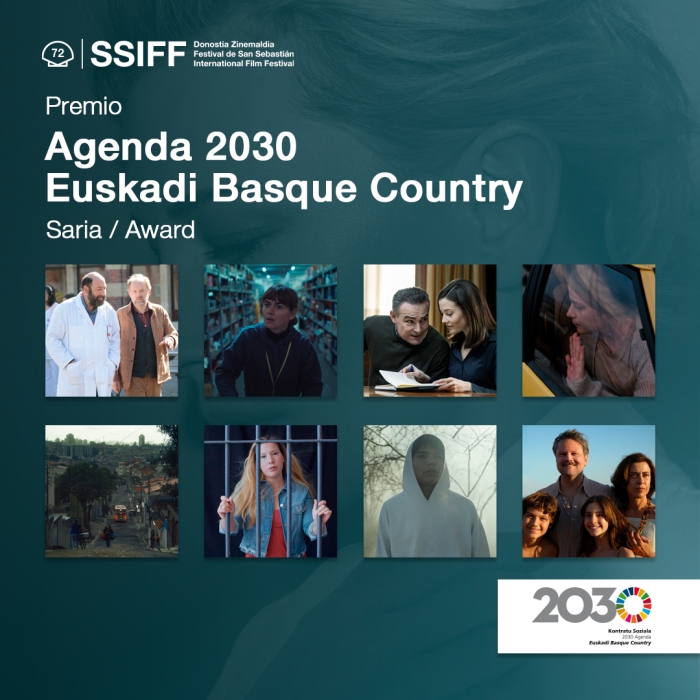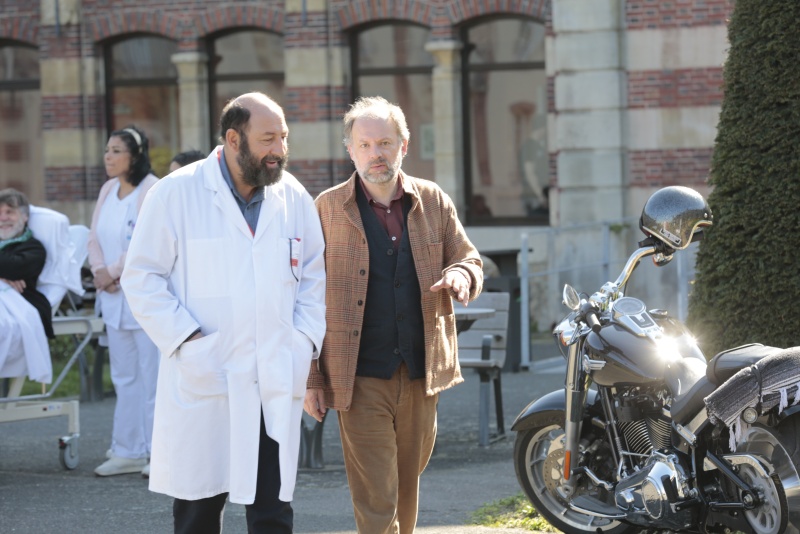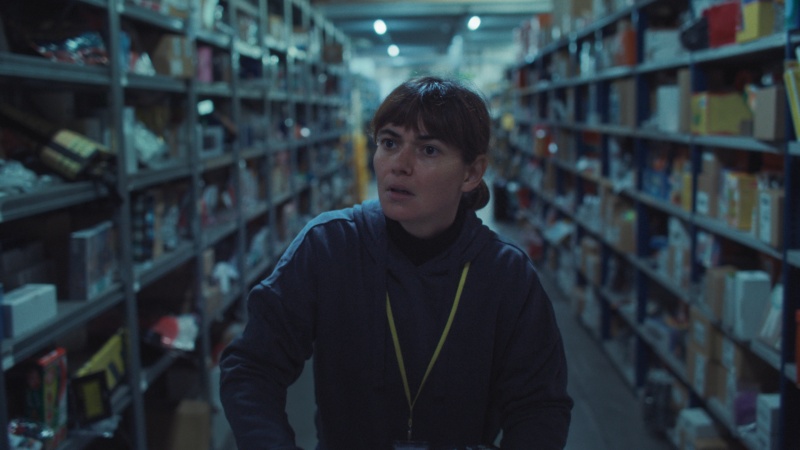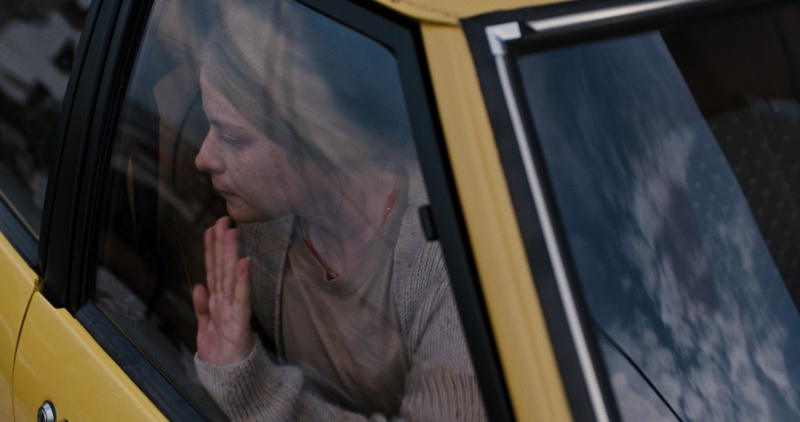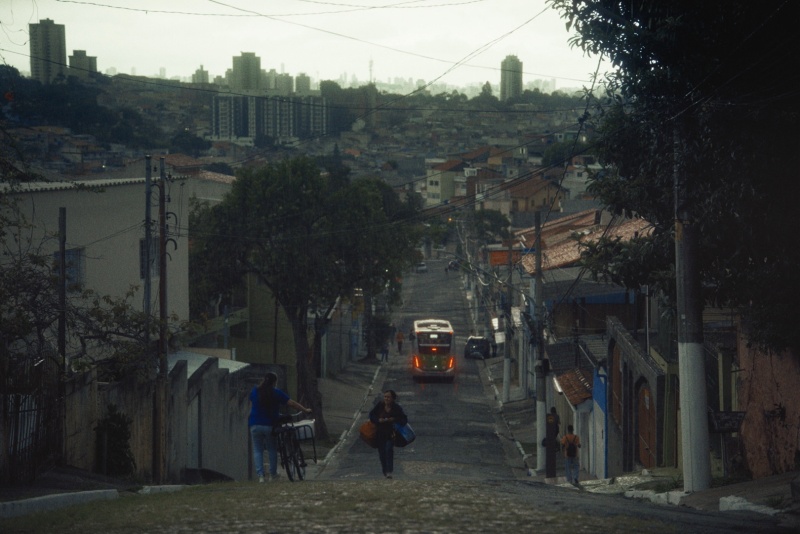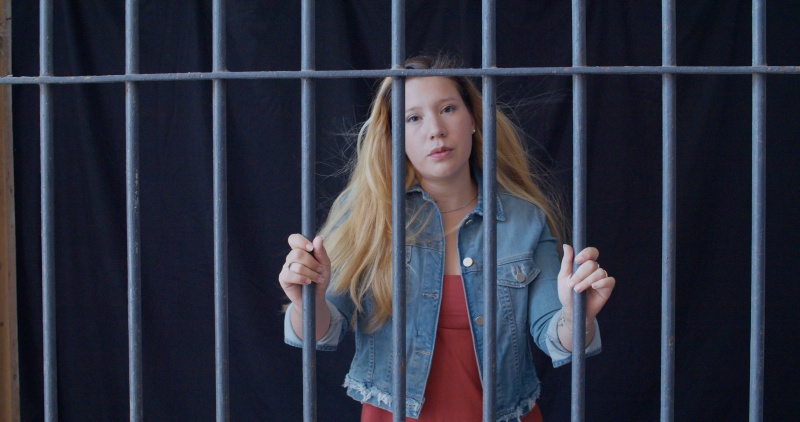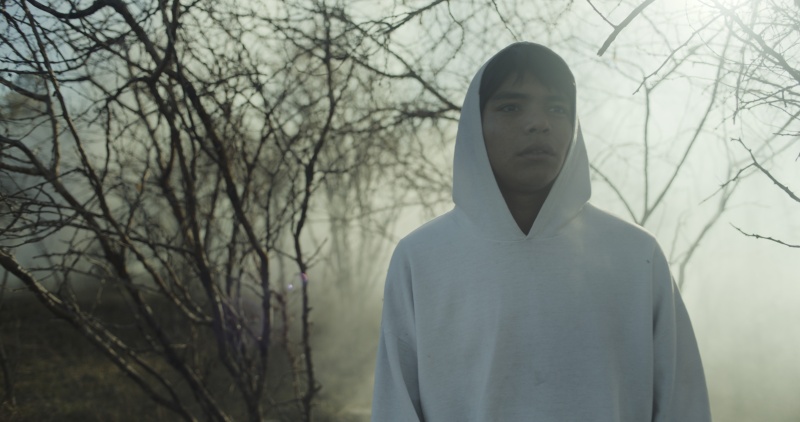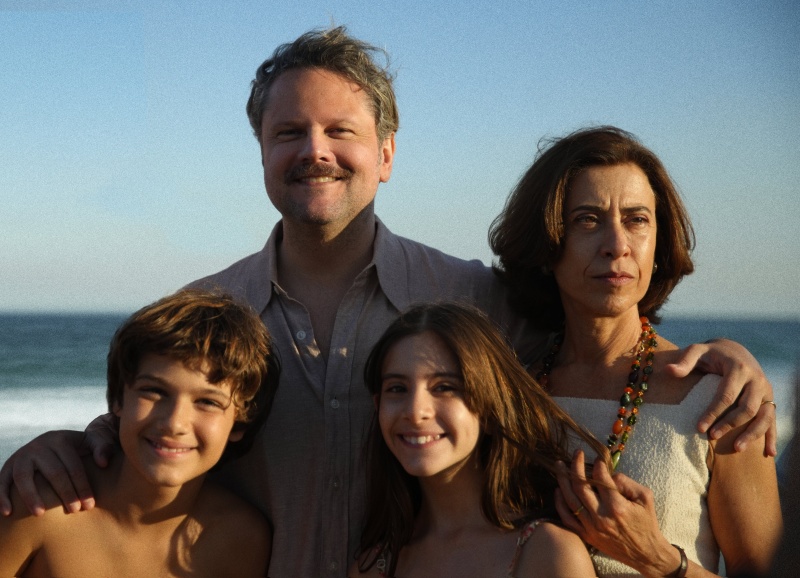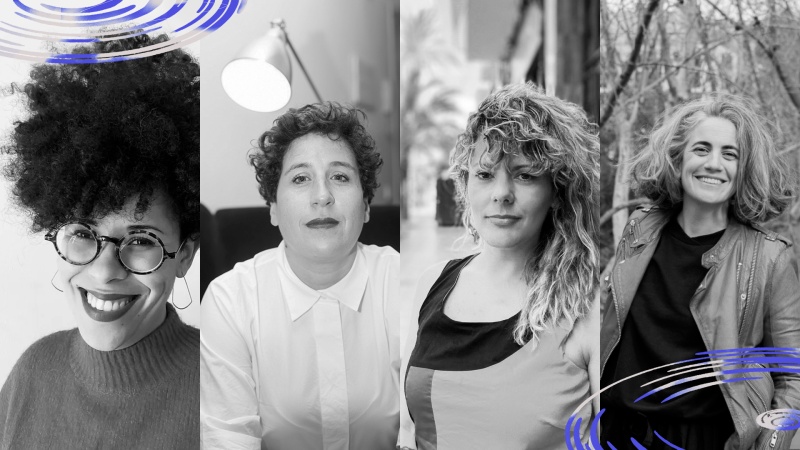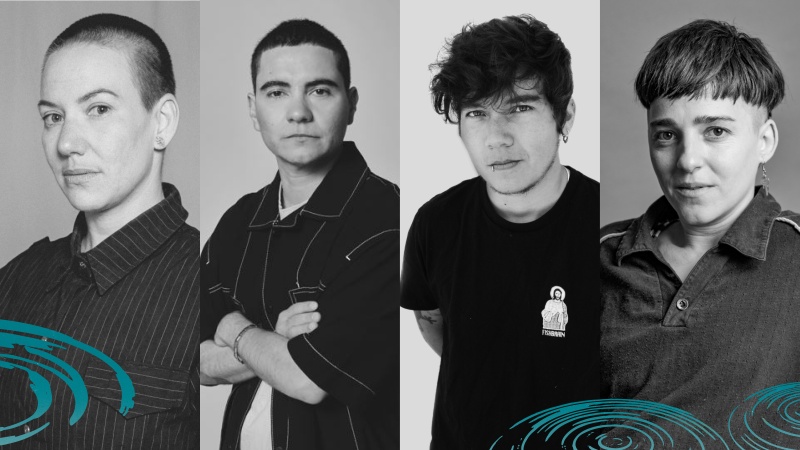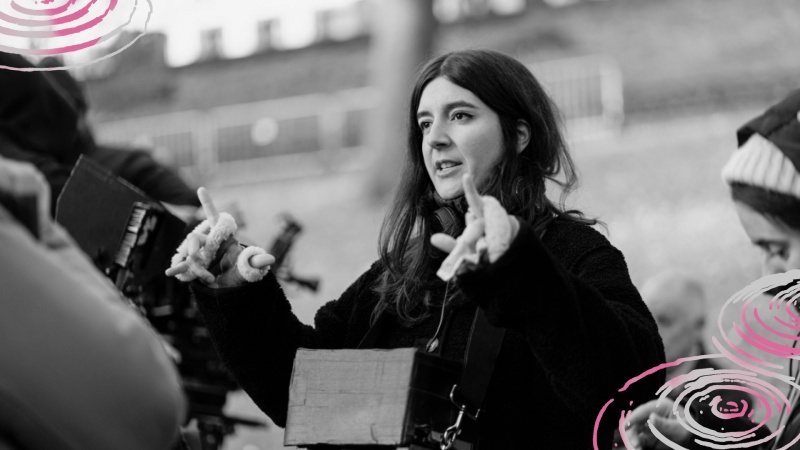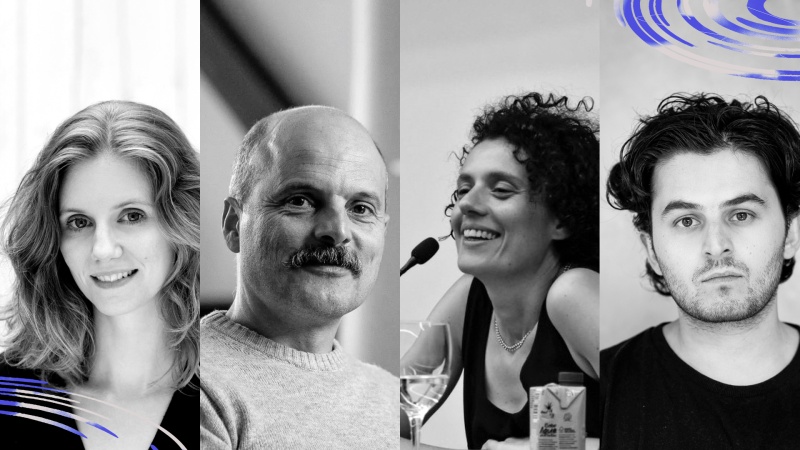Eight movies from the official programme of the San Sebastian Festival’s 72nd edition will compete for the Euskadi Basque Country 2030 Agenda Award, going to the film that best reflects the values of sustainability and solidarity as the core symbols of the Sustainable Development Goals promoted by the 2030 Agenda at the United Nations.
Three of the competing films appear in the Official Selection: Soy Nevenka / I Am Nevenka (Iciar Bollaín), On Falling (Laura Carreira) and Le dernier souffle / Last Breath (Costa-Gavras). The jury will also analyse the film appearing in New Directors, Gülizar / Gulizar (Belkis Bayrak) as well as Reas (Lola Arias), Sujo (Astrid Rondero and Fernanda Váladez) and Cidade; Campo (Juliana Rojas), all three programmed in Horizontes Latinos, and Ainda estou aquí / I’m Still Here (Walter Salles), showing in Perlak, recent recipient of the Best Screenplay Award at the Venice Festival. Films from Argentina, Brazil, UK, Spain, France and Turkey prompting reflection on the precarious job situation, migration, prisons, the feminist struggles, people at the end of their lives, nature and threats to democracy.
The jury of the Euskadi Basque Country 2030 Agenda Award will be presided over by the actor and director Juan Diego Botto, alongside the screenwriter Alicia Luna and the Director of Social Innovation with the Basque Government, Asier Aranbarri. The presentation ceremony for the award, coming with 20,000 euros for the majority producer of the winning movie, will take place in the Tabakalera Prism on Thursday 27 at 17:00. The presentation will be followed by a cocktail serving as a meeting point for the media, the film industry and the general public. Those who have purchased tickets for the screening of any of the eight films can attend the award presentation. Last year, the event was attended by the team of the winning film, Bâtiment 5 / Les indésirables, led by their director, Ladj Ly.
Film Talks
As well as the award connected to the cinematic message of films at the 72nd edition, a series of film talks will also be held linked to the values set out by the 2030 Agenda.
An analysis will therefore be made of Production From a Feminist and Intersectional Perspective in a conversation organised in collaboration with the CIMA and the Interterritorial Work Group on Equality in Audiovisuals 50/50 by 2025, taking place on the 23rd in Room Z between the producers Inés Nofuentes and Beli Martínez with the director Lara Izagirre and moderated by the content and diversity consultant, Salima Jirari.
There will also be a talk on The Inclusion of Transmasculine Realities in Ibero-American Cinema, organised in collaboration with Gehitu (the Basque association of gays, lesbians, transexuals and bisexuals) and Mugen Gainetik. Tuesday 24th will see the participation of professionals from the fields of directing and screenwriting (Afioco Gnecco), production (Charli Bujosa) and casting direction (Do Bofill) and will be moderated by Emilio Papamija, director of research and of trans representation at the Observatory of Diversity in Audiovisual Media (ODA).
Director Justin Edgar and disability inclusion specialist Shani Dhanda will discuss Diversity and Inclusion On- and Off-screen on Tuesday 24th. The meeting is organised in collaboration with the British Film Institute (BFI) and moderated by Claire Baines, an Inclusion Partner of said institution.
Laura Carreira will take the lead in another conversation on Thursday 26th. Having successfully shot several short films, the Portuguese director will present her feature debut On Falling at the Festival. During her intervention, Carreira will dissect the process of making the film, also talking about the possibilities of the cinema for promoting change.
Lastly, also on the 26th, Room Z will host the film talk New Narratives: The Climate Lens in Cinema reflecting on the possibility of generating alternative, positive and realistic stories on the issue of the climate emergency. Participants in this talk will be the British filmmaker and screenwriter Elham Ehsas, Bilibin consultant Eneko Muruzabal and Greenpeace’s ecofeminism coordinator, Nerea Ramírez. The session will be moderated by Len Rowles from Climate Spring.
2030 Agenda
The Euskadi Basque Country 2030 Agenda Award is, for the third year running, one of the sponsors of the San Sebastian Festival. The 2030 Agenda is a UN agreement reached in 2015. It represents a commitment by 193 countries with a shared focus for 2030: a sustainable world and life, and a same priority: to eradicate poverty. It aligns the policies of the public institutions, private bodies and social agents across the world with 17 goals, 169 targets and indicators, for a fairer, more ecological, prosperous and peaceful world.
Five major commitments summarize its content: (I) Reduce inequality, promote inclusion and end poverty; (II) reverse climate change and promote the ecological-energy transition; (III) improve health care, education and digital progress and make its access universal; (IV) make enterprise, work and employment shared values of dignity, prosperity and sustainability; and (V) lay the foundations for peace, harmony and respect for human rights all over the world.
Today the war continues in Ukraine and Gaza. The same applies to Yemen, Iraq, Syria, Afghanistan, Myanmar, South Sudan, Ethiopia, Somalia, Sahel, Congo Democratic Republic… This rising presence of the war and its effects on the world should turn international thoughts to updating SDG 16, focused on peace.
The 2030 Agenda, as well as Governments, Provincial Councils and Town Councils, involves companies, universities, social bodies and agents, and people themselves. It is a commitment of the Basque institutions, who give top priority to this global and local agenda of transformation and solidarity.
Official Selection
In a kind of philosophical dialogue, Doctor Augustin Masset and renowned writer Fabrice Toussaint discuss life and death... A whirlwind of encounters in which the doctor is the guide and the writer, his passenger, led to confront his own fears and anxieties... A poetic ballet, where each patient is a tome of emotions, laughter and tears... A journey to the throbbing heart of our lives.
On Falling tells the story of Aurora, a Portuguese warehouse picker working in a vast fulfilment centre in Scotland. Trapped between the confines of her workplace and the solitude of her flat-share, Aurora seeks to resist the loneliness, alienation and ensuing small talk which begin to threaten her sense of self. Set against a landscape dominated by an algorithm-driven gig economy, designed to keep us apart, On Falling explores the silent, vital struggle to find meaning and connection.
In the year 2000, Nevenka Fernández, the Finance Councillor of Ponferrada Town Council, is relentlessly hounded by the mayor, a man used to getting his way both politically and personally. Nevenka decides to report him, knowing that it will cost her dearly. A story based on true events turning its lead character into a forerunner of the #metoo movement due to being the first person to take an influential politician to court for sexual and labour harassment.
New Directors
After Gülizar is sexually assaulted, her future husband Emre does not report the incident, but later decides to go after the attacker himself. Gülizar's wedding preparations slowly turn into a claustrophobic, silent journey as she fears that her attacker will be exposed. Her flame of silence burns not only herself, but also the love she feels for Emre.
Horizontes Latinos
Two tales of migration between city and countryside. In the first part, after a tailings dam disaster floods her hometown, rural worker Joana moves to São Paulo to find her sister Tania, who lives with her grandson Jaime. Joana struggles to thrive in the working city. In the second part, after the death of her estranged father, Flavia moves to his farm with her wife Mara. The nature forces the two women to face frustrations and cope with old memories and ghosts.
Yoseli has a tattoo of the Eiffel Tower on her back and has always wanted to travel, but she was arrested at the airport for drug trafficking. Nacho is a trans man who was busted for fraud and formed a rock band in jail. Gentle or tough, blond or shaven, cis or trans, old-timers or new arrivals: in this hybrid musical everybody recreates their life in a Buenos Aires prison.
After a cartel gunman from a small Mexican town is murdered, Sujo, his beloved four-year-old son, is left an orphan and in danger. Sujo narrowly escapes death with the help of his aunt who raises him in the isolated countryside amidst hardship, poverty, and the constant peril associated with his identity. When he enters his teens a rebelliousness awakens in him, and like a rite of passage, he joins the local cartel. As a young man, Sujo attempts to make his life anew, away from the violence of his hometown. however, when his father’s legacy catches up with him, he will come face-to-face with what seems to be his destiny.
Perlak
Brazil, 1971. A country in the tightening grip of a military dictatorship. A mother is forced to reinvent herself when her family’s life is shattered by an act of arbitrary violence.
FILM TALKS
Monday 23, 11:00, Tabakalera Room Z
Aware of the inequalities and power dynamics in the industry, the associations of women filmmakers, together with the San Sebastian Film Festival, promote new practices in audiovisual production placing priority on care, the prevention of abuse and intersectional inclusion with the aim of achieving a significant change that considers the integral wellbeing of all participants in production. This Film Talk will therefore explore the challenges of these changes and the importance of care policies to ensure a safe and respectful environment and share approaches to implementing intersectional practices that value diversity. This exchange of ideas aims to highlight current challenges and inspire concrete actions towards a more inclusive and equitable audiovisual industry for all, regardless of gender, race, sexual orientation or other characteristics.
Tuesday 24, 10:30, San Telmo Museoa Function Room
A talk focused on the representation of transmasculinity in Ibero-American cinema, aiming to share opinions and ideas on how to build a safe and inclusive film industry. Taking the experiences of professionals from the Ibero-American industry as a starting point, the conversation will centre on the strategies and changes underway today to create more inclusive and fluid perspectives. It will explore how cinematic narratives offer new viewpoints, revisiting the past and exploring new references to imagine a more inclusive future.
Tuesday 24, 11:30, Tabakalera Z Room
This conversation will address the importance of diverse and equal representation both on- and off- screen. The discussion will focus on the importance of including people with disabilities in films, creating compelling stories and characters and will attempt to answer questions such as: What are the most common mistakes when hiring a person with a disability? How to make film sets more accessible? In addition, it will examine how diversity in production, directing and screenwriting roles is crucial to ensure a more inclusive film industry. With this session, organised in collaboration with the British Film Institute, the Festival wants to turn the spotlight on the fact that greater inclusion not only enriches the stories told, but also has a positive impact on society by reflecting and validating human diversity.
Thursday 26, 15:30, Tabakalera Cinema
Laura Carreira is a Portuguese filmmaker who, after successfully releasing several short films such as Red Hill (2019), nominated for Best Short Film at the BAFTA Scotland Awards and The Shift (2020), which competed at the Venice Festival, presents her feature film debut in the Official Selection of the San Sebastian Festival, On Falling. This film talk will seek to learn first-hand about the process of making the film, as well as the possibilities that cinema has to promote change, shake consciences and foster stories that can change the way society responds to crises.
*The session includes the screening of On Falling and the subsequent talk.
Thursday 26, 17:30, Tabakalera Room Z
This conversation will explore how contemporary cinema addresses the climate crisis, not just as an apocalyptic backdrop, but as a central element shaping stories and characters. The discussion will focus on how women filmmakers are redefining traditional narratives to reflect environmental urgencies, creating a new genre or sub-genre that combines human drama with ecology. In this context, these new voices seek to move away from sensationalism and catastrophism, opting for more nuanced approaches that include stories of resilience, adaptation and the search for solutions.

